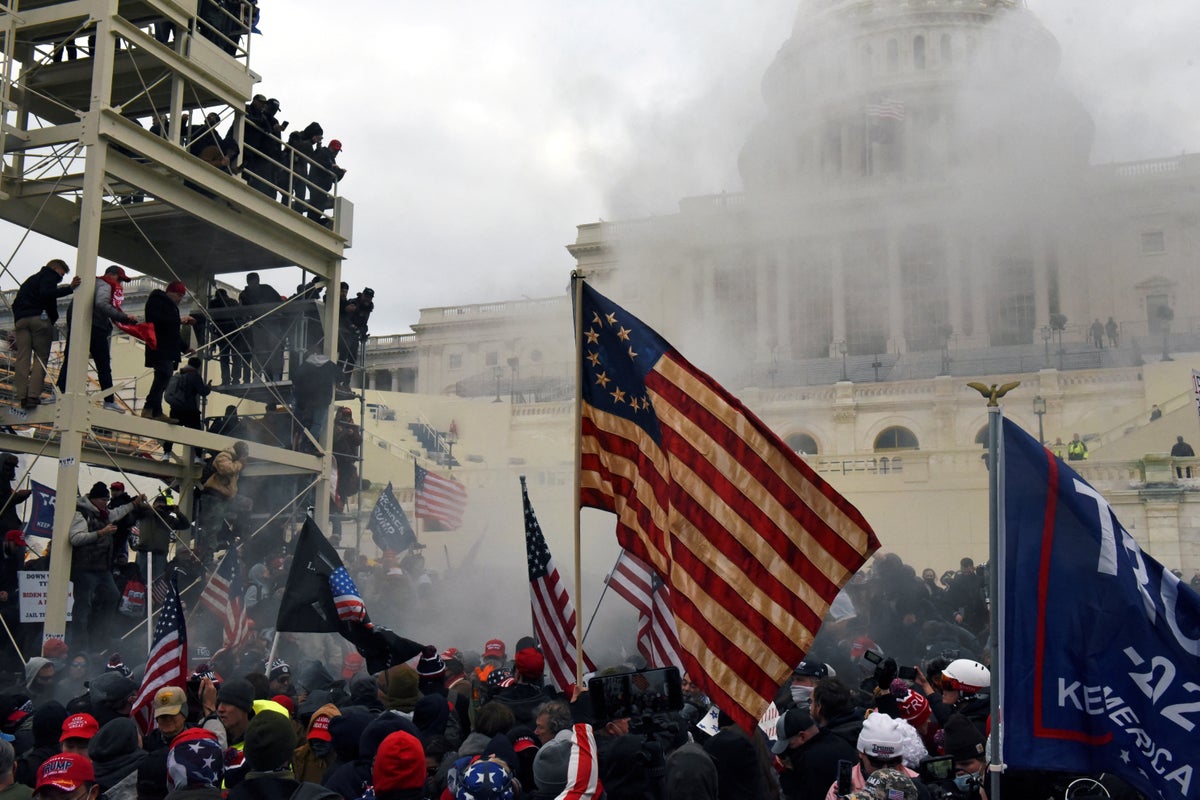
Your support helps us to tell the story
Donald Trump bears responsibility for the attacks on the Capitol on January 6, 2021, according to a filing from Jack Smith in the election interference case against the former president.
Trump is “incorrect” to argue that he is not legally responsible for the attack, according to Smith, who points to his lengthy indictment and evidence that he says “plainly” shows that the former president summoned his supporters to Washington, DC, and directed them to march to the Capitol as part of a pressure campaign to overturn 2020’s election results.
He “willfully caused his supporters to obstruct and attempt to obstruct” a joint session of Congress, then gave them a “false hope” that Vice President Mike Pence would change the outcome, according to Wednesday’s filing.
A defendant “is criminally liable when he ‘willfully causes an act to be done which if directly performed by him or another would be’ a federal offense,” Smith notes.
The allegations against the former president “link the defendant’s actions on January 6 directly to his efforts to corruptly obstruct the certification proceeding,” according to the filing.
Smith’s team wrote in response to Trump’s latest attempt to have the case against him thrown out, pointing to a recent Supreme Court decision involving criminal prosecutions against rioters who were charged with obstruction.
That decision “expressly held” that a statute under which Trump is charged can still be applied in a case involving false evidence to obstruct the certification of election results, the filing notes.
Trump’s lawyers had previously argued that the indictment “stretches generally applicable statutes beyond their breaking point based on false claims that President Trump is somehow responsible” for the January 6 attack.
His lawyers have accused federal prosecutors of trying to “assign blame for events President Trump did not control and took action to protect against.”
The Supreme Court’s decision in Fischer v United States “fatally undermines” the charges against him, they wrote earlier this month.
But Smith argues that the Supreme Court’s decision “did not invalidate” the statute under which Trump is charged, “and the defendant fails to identify any pleading flaw in the superseding indictment warranting its dismissal.”
Trump “ignores entirely that the case against him includes allegations that he and his co-conspirators sought to create and use false evidence — fraudulent electoral certificates — as a means of obstructing the certification proceeding,” Smith wrote.
“The defendant’s half-hearted arguments” against charges of criminal conspiracy “likewise lack merit,” he added.
A stunning 165-page document filed in federal court earlier this month — the fullest picture yet of Smith’s case — is full of new details about Trump’s alleged scheme, providing the court with a blueprint for evidence that prosecutors intend to show to a jury at trial.
The document outlines Trump’s “increasingly desperate” and criminal efforts to cling to power while relying on “knowingly false claims of election fraud,” according to prosecutors.
District Judge Tanya Chutkan granted Trump’s attorneys an extension to respond to the filing until after Election Day. His separate motion to dismiss the case reviving his presidential immunity arguments is due on November 7.







